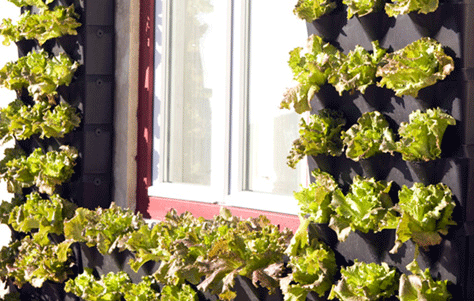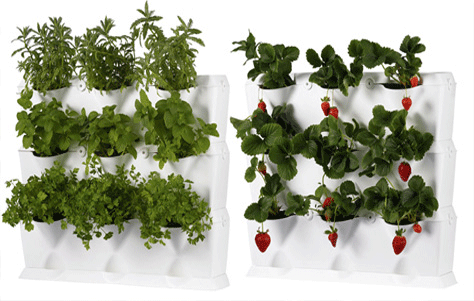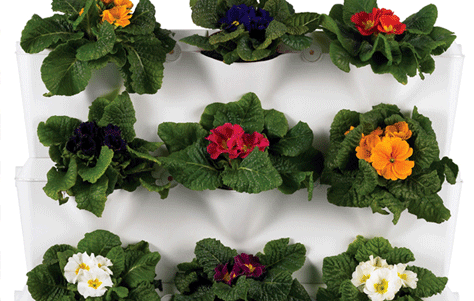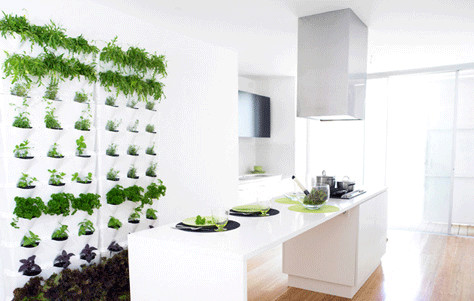Space Saving Vertical Minigarden
Take a look into a courtyard of an apartment building or on the fire escapes and window ledges and you’re likely to see plants. People are desperate for greenery in their lives, and will use any space available to cultivate even the smallest garden. At my apartment, we have a planter on the fire escape and some herbs in small pots on the kitchen window sill that are constantly being knocked over by the wind. Efficiency of space is critical for all things city related, which makes the Minigarden all the more necessary and amazing.

Minigarden is a vertical gardening device that is modular to be easily adjustable for many circumstances. The modules can be stacked and connected to be single, back to back, and wall mounted. For the more ambitious gardener, Minigarden offers a irrigation system to make the process flow smoothly. The unique drainage system directs excess water through a series of plates and grills to keep the plants from being overwatered.
Minigarden offers environmental benefits in a number of ways. It is a primarily a source of fresh produce or herbs, but is also a great way to use compost and even promote thermal insulation. A well placed vertical garden on the exterior of a building can reduce the need to heat or cool a building. The black or white Mingarden modules are made from a tough durable copolymer polypropylene plastic, which, according to “The Green Guide” #77, The Green Guide Institute, are safe and do not leach chemicals.
About the Company: Minigarden is a brand within the Quizcamp Company, based out of Alentejo. Created in 2005; Quizcamp is a Portuguese agro-alimentary company which works to intervene in the entire agriculture to table process. They are involved in a series of parallel businesses such as beekeeping; mycoculture; tourism and the MiniGarden.
via Urban Gardens






0 comments:
Post a Comment